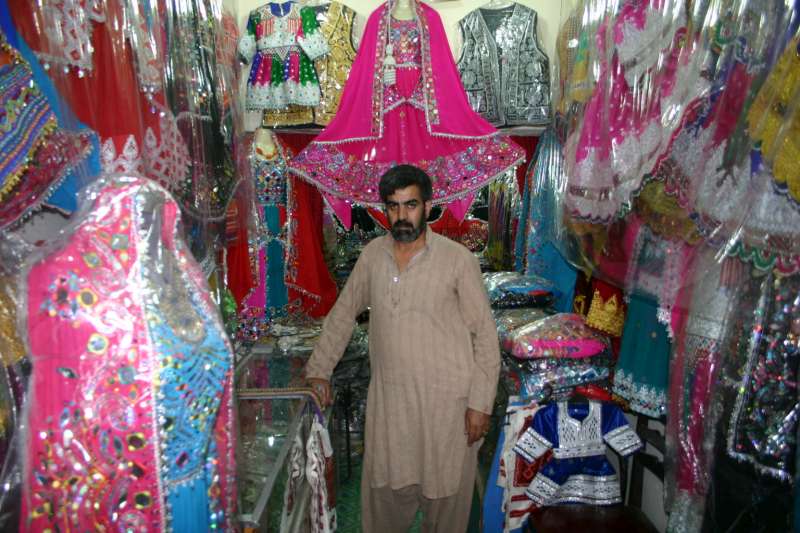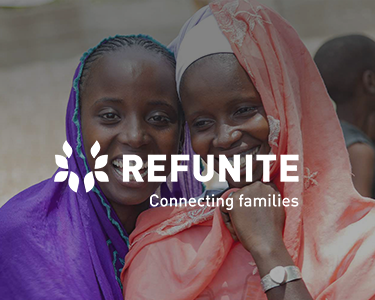
Former journalist Rehman Faizai now sells traditional Afghan cloths at a market in Islamabad. He welcomed Pakistan’s decision to let registered refugees stay longer.
GENEVA, March 25 (UNHCR)– The UN refugee agency on Thursday welcomed the Pakistani government’s decision to allow 1.7 million registered Afghans to remain in the country for three more years, alongside continued voluntary repatriation to Afghanistan.
The Pakistan cabinet on Wednesday endorsed a new Strategy for the Management of Afghans in Pakistan, which includes extending the validity of Proof of Registration (PoR) cards until the end of 2012. The cards, which are issued to registered Afghan refugees, expired last December 31. They will be replaced with new cards with enhanced identification features.
“This is clearly welcome. Pakistan remains host to the largest refugee population in the world and its continuing generosity in response to the uprooted is vital,” UN High Commissioner for Refugees António Guterres said on Thursday of what is also one of the world’s most protracted refugee situations.
The new Pakistani strategy also extends the Tripartite Commission Agreement between UNHCR, Pakistan and Afghanistan for another three years, as the voluntary repatriation of Afghans continues in safety and dignity and in line with the security situation and capacity of Afghanistan to absorb returning refugees. And the strategy calls for better reintegration and economic opportunities within Afghanistan to support sustainable return.
UNHCR has agreed to mobilize additional support for communities in Pakistan that have hosted Afghan refugees. This will see problems like environmental degradation and the rehabilitation of infrastructure and social services addressed through the Refugee Affected and Hosting Areas programme.
“I call upon the international community to strengthen its support to Pakistan for the hosting of Afghan refugees, taking into account too the needs of the refugee-impacted areas and their communities. Funding needs to be commensurate with the generosity shown by Pakistan over the past three decades,” said Guterres.
Pakistan’s new strategy also includes arrangements for some of the unregistered Afghans. A visa regime will manage the stay of business people, students and other categories. Families headed by women in the absence of a male breadwinner will be allowed to stay.
The Pakistan cabinet’s decision to extend the validity of the Proof of Registration cards was also welcomed by Afghan refugees that UNHCR talked to on Thursday. “I am delighted with the government’s decision to extend the PoR until 2012 and allow Afghans to stay legally in Pakistan for three more years,” said 50-year-old Sofia Azad, who fled to Pakistan in 1999 and teaches at a school in Islamabad.
She said her family did not think the security and economic situation in Afghanistan was stable enough for them to return at the present time. “In Pakistan, we can educate our children in a peaceful environment and manage our economic situation,” she said.
Another Afghan refugee, 47-year-old former journalist Rehman Faizai said he was “grateful for Pakistan’s generosity and UNHCR efforts to support the refugee community at this critical time.”
Fifteen-year-old student, Wafa, was happy about the extension because it meant she could continue her studies in Pakistan.
More than 3.5 million Afghans have returned home from Pakistan with UNHCR’s help since 2002. The voluntary repatriation operation resumed this week after the winter from UNHCR centres in the North West Frontier Province city of Peshawar and in Quetta, in the southern province of Balochistan.
“My office is committed to continuing our work with the governments of Pakistan and Afghanistan to find lasting solutions for Afghan refugees,” Guterres stressed on Thursday.
Source: UNHCR


